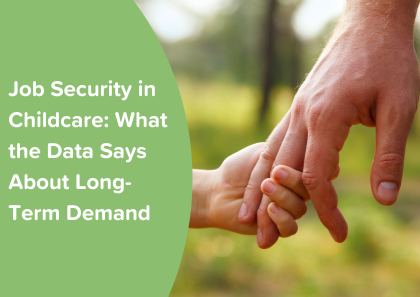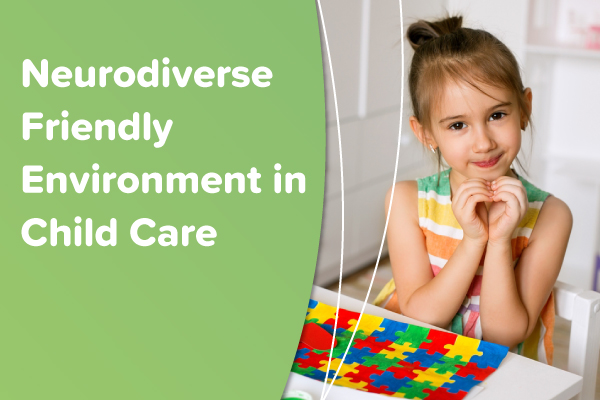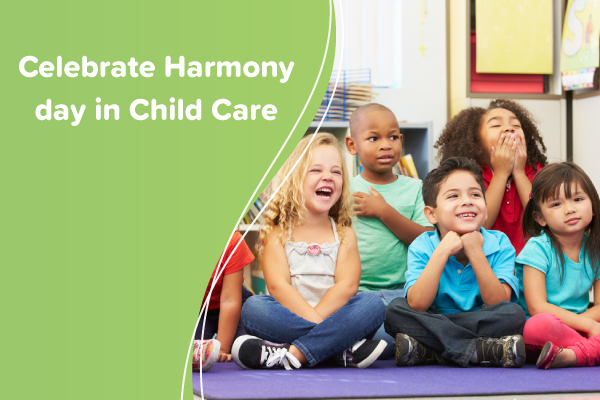Soft skills are often regarded as integral for workplace success, with many early childhood education employers considering them just as important as hard skills.
The combination of emotional intelligence, personal attributes like patience and responsibility, as well as communication and social skills, are examples of soft skills which can equip you to thrive in the sector. Not only will you be better able to work effectively with others, solve problems and be creative, but you will also have the ability to maximise your productivity and your ability to succeed within your role.
Soft skills are not necessarily taught explicitly, but with the right training approach and self-reflection, they can be developed and offer many benefits for your career journey as an educator and employee. Along with studying, passion and experience, soft skills can help you get the job you want, flourish in your role and even progress in your career.

A focus on soft skills in early childhood education
There are many sectors and careers that are enhanced through the soft skills of individuals. Particularly in early childhood education, these personal qualities can give educators the ability to support, nurture and educate children more constructively. They can also help educators better relate to families and their fellow educators.
The ability to listen, be patient, show kindness and empathy — soft skills — are so vital in early childhood education is because an element of the position of educator is to role model behaviour. Children learn from observing and often copying what they see around them. An educator who has a highly developed ability to problem-solve might find the children in their care develop that skill at a faster rate through watching and learning effective problem-solving tactics.
Soft skills that are highly valuable in the early childhood education sector include:
Emotional intelligence
Emotional intelligence is a broad term comprising self-regulation, self-awareness, motivation, social skills and empathy. These areas all contribute greatly to employability as well as ability to succeed in (and out) of the workplace. Emotional intelligence impacts relationships with others and making the right behavioural choices in a range of contexts.
Communication
Whether you are communicating with children, parents or other early childhood professionals, communication skills can play a key role in your career success. This soft skill doesn’t just mean developing your own speaking and writing skills, but also comprehension of others through effective reading and listening.
Patience
Young children are still learning how to understand the world, and as we all know, learning new things can be frustrating. Children are prone to emotional outbursts as they learn to master new skills, including self-regulation! Patience is very useful for early childhood educators, especially when guiding children through their own frustrating situations.
Cultural competence
We all come from a variety of different backgrounds and cultures. Cultural competence is the ability to understand and educate across them. Early childhood education involves working with children and families with a range of cultural backgrounds and demographics, so possessing cultural competence is important.
It’s clear that each of these soft skills in the workplace can contribute to providing children with a high-quality early childhood education as well as a fulfilling career as an educator.
A human-centred approach to education
Over the last few years soft skills have become increasingly valued, with human-centred education techniques now recognised alongside the more traditional, practical approach to education. As the name suggests, this approach focuses on the human element of education — that is, our learners’ wellbeing, curiosity and care in relation to their studies. It enables people to develop their vital soft skills while gaining technical skills and formal qualifications simultaneously.
A human-centred education approach can go on to influence the way educators undertake their own professional endeavours — this is particularly meaningful when considering that today’s early childhood education learners are tomorrow’s educators, set to shape the lives of children. Bringing together knowledge and hands-on skills with soft skills can help to nurture society that is compassionate and caring.
Training that supports soft skill development
Practical Outcomes utilises the power of human-centred training approaches. We train our learners in way that focuses on strengthening their soft skills during their course. Vital soft skills training is provided within our courses, with the goal of sending our learners into the early childhood sector as caring, compassionate and highly effective professionals — early childhood educators who are equipped to give children the best start in life.

In addition to reinforcing soft skills and further developing them throughout learners’ studies, Practical Outcomes introduced practical methods too. For example, our learners engage with their learning in a meaningful way through their practical placement journals. These journals support learners to self-reflect, exploring their own personal qualities and discovering their strengths, weaknesses and ultimately their full potential.
Soft skills training for better outcomes
Working on soft skills can optimise your own education as you head into the early childhood sector, as well as the way you provide education to children. Learning how to identify your unique personal attributes and interpersonal skills gives you the ability to hone in on your soft skills and get the most from your career in early childhood education.
With soft skills developed and regarded in the early childhood sector, we can pave the way to a world that is more creative, caring and compassionate. If you think it might be time to embark on a career in early childhood, this checklist can help you decide if you’re ready to make your move.
To learn more about our focus on human-centred learning, get in touch.



